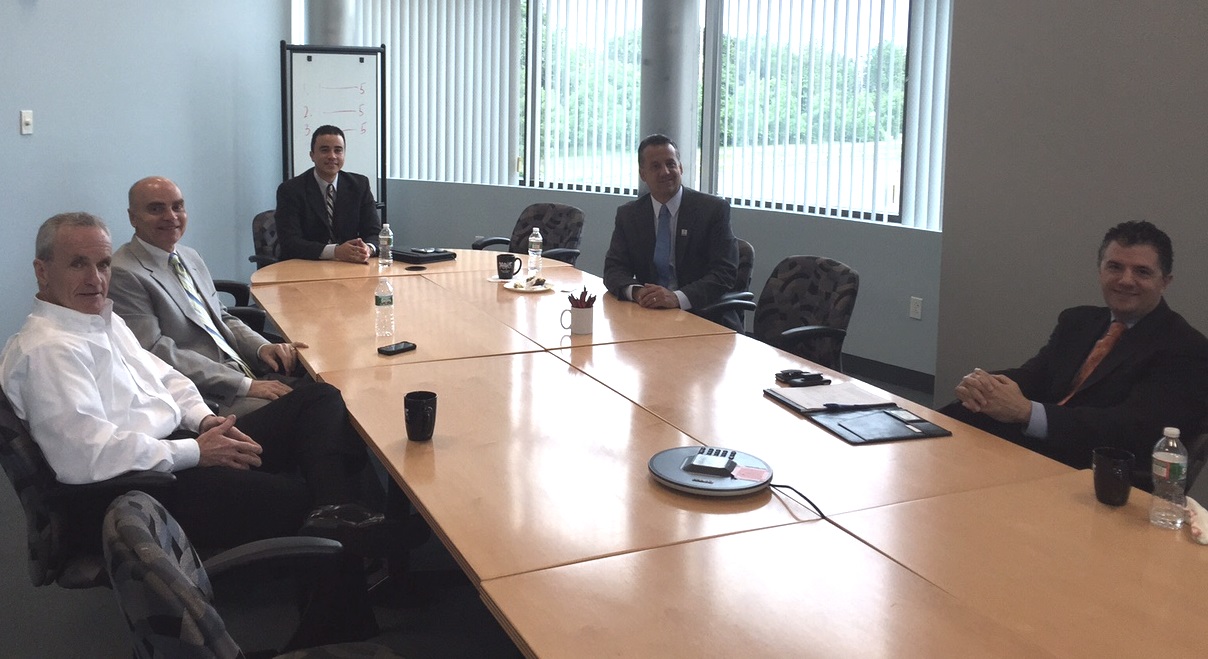Press

Massachusetts credit union leaders meet with CFPB to discuss current and future CFPB initiatives
BOSTON, MA (June 29, 2015) — Leaders from the Massachusetts credit union system met with Consumer Financial Protection Bureau Deputy Director Steve Antonakes recently to talk about the impact of current and future CFPB regulations.
Cooperative Credit Union Association President Paul Gentile, Boston Firefighters Credit Union President/CEO Bernie Winne and Workers’ Credit Union President/CEO Doug Petersen covered a wide range of issues with Antonakes, including the potential of HMDA being prescribed on home equity loans, pending overdraft and payday alternative regs expected from CFPB by next year, co-signer release of private student loans, the unintended consequences of some of CFPB’s proposals, and overall reg burden facing credit unions.
There was also an overall theme of the CFPB looking to and utilizing credit unions more as the core example of financial institutions providing quality services to consumers.
Winne stressed to Antonakes the significant and costly challenge of readying credit union processing systems to report home equity loan data for HMDA, which is currently an open question with the CFPB. He noted that while larger institutions can better afford and adapt to a major systems change, credit unions don’t have that same luxury. Winne also noted that today’s home equities often act like consumer loans for things like autos and home improvement costs, which are not loans in line with the intent of HMDA. The home equity question is still being considered by CFPB.
Petersen urged CFPB to consider whether a reg is necessary or not, regardless of asset size. Petersen noted that a lot of the CFPB regs are driven by the size of the institution, but regs should be evaluated based on whether they add value or not. He also noted that consumers don’t want information overload. For example, new requirements with escrow account reporting force institutions to bring escrow accounts in balance for what is often the normal annual ebb and flow of changes to taxes, insurance and other impacts to the escrow account. This change has led to a lot of annual processing of checks and statements for typical small dollar variances of the escrow process.
Gentile focused squarely on the unintended consequences of good intentioned regs. He noted CFPB concerns over overdraft protection and payday loans may be well warranted with some financial players, but credit unions are good actors in these areas and CFPB must be cognizant of the value those programs have for consumers. If the CFPB becomes too restrictive, good credit union programs may be less accessible to consumers.
Gentile also honed in on private student loans, a core focus of the CFPB. The CFPB is now looking at co-signer release complaints of private student loans. Gentile noted that co-signer release is not as simple as notifying the co-signer. The loan must be current (most notes are for 24 straight months), and the student has to essentially reapply for the private student loan for the co-signer to be released. Unfortunately, many of today’s students do not graduate with the types of jobs that will quickly allow for co-signer release. He noted it is not a problem in the credit union space and more than 75% of credit union PSLs are co-signed, adding to the very low delinquency rate of private student loans.
Antonakes, a past Massachusetts Commissioner of Banks, urged the group to continue to engage with the CFPB and that the CFPB needs data from industry to effectively promulgate sound regulation.
About the Cooperative Credit Union Association
The Cooperative Credit Union Association, headquartered in Marlborough, Mass., promotes the interests of more than 180-member credit unions located throughout the states of Massachusetts, New Hampshire and Rhode Island. The Association is, first and foremost, an advocate for its members, representing them before Congress and state legislatures, regulatory bodies and the public. It also provides an array of services including educational programs, workshops and conferences; a digital Daily CU Scan to brief its members on all the latest news and issues facing credit unions; and, through its CU Connectprogram—a select group of service providers—and a number of system partners, works to advance the availability of their services to its members. For more information, visit CCUAssociation.org.
Photo caption: L-R: Bernie Winne, Doug Petersen, CFPB’s Emmanual Manon, Paul Gentile, and Steve Antonakes.
